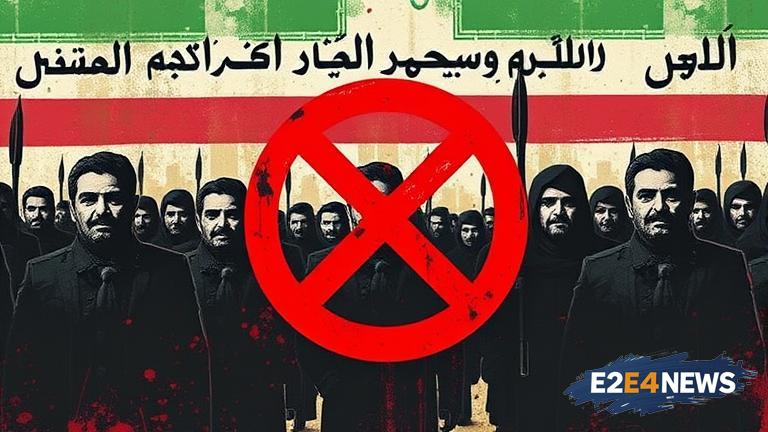The No to Execution Tuesdays campaign in Iran has reached its 80th week, with the regime showing no signs of relenting in its use of capital punishment. Despite international condemnation, the Iranian authorities continue to execute prisoners, often in secret and without due process. The campaign, which was launched to raise awareness about the high number of executions in Iran, has been marked by unrelenting state violence. The Iranian regime has responded to the campaign with brutal force, arresting and imprisoning activists and dissidents who have spoken out against the use of capital punishment. The situation in Iran is dire, with the regime executing dozens of prisoners every week. The majority of those executed are convicted of drug-related offenses, although many are also put to death for political crimes. The use of capital punishment in Iran is often arbitrary and unfair, with prisoners frequently denied access to lawyers and fair trials. The international community has condemned the Iranian regime’s use of capital punishment, with many countries and human rights organizations calling for an end to the practice. Despite this, the Iranian authorities remain unmoved, continuing to execute prisoners with impunity. The No to Execution Tuesdays campaign has highlighted the need for urgent action to be taken to stop the use of capital punishment in Iran. The campaign has also drawn attention to the plight of prisoners on death row, many of whom are at risk of imminent execution. The Iranian regime’s use of capital punishment is a clear violation of international human rights law, and the international community must take action to hold the regime accountable. The United Nations has called on Iran to impose a moratorium on the use of capital punishment, although the regime has so far refused to comply. The European Union has also condemned the Iranian regime’s use of capital punishment, and has imposed sanctions on the regime in response. The situation in Iran is a stark reminder of the need for continued activism and awareness-raising about human rights abuses around the world. The No to Execution Tuesdays campaign has played an important role in highlighting the issue of capital punishment in Iran, and has helped to build a global movement to end the practice. However, much more needs to be done to stop the use of capital punishment in Iran, and to hold the regime accountable for its human rights abuses. The international community must continue to speak out against the Iranian regime’s use of capital punishment, and to support the brave activists and dissidents who are working to bring about change in Iran. The use of capital punishment in Iran is a symptom of a broader human rights crisis, and the international community must take a comprehensive approach to addressing the issue. This includes supporting human rights defenders and civil society organizations, as well as imposing targeted sanctions on the Iranian regime. The No to Execution Tuesdays campaign has shown that even in the face of overwhelming repression, it is possible to build a movement and to bring about change. The campaign has also highlighted the importance of international solidarity and cooperation in the face of human rights abuses. As the campaign continues, it is likely that the Iranian regime will respond with further violence and repression. However, the activists and dissidents who are leading the campaign remain undeterred, and are committed to continuing their work to bring about an end to the use of capital punishment in Iran. The international community must stand with them, and must take urgent action to stop the use of capital punishment in Iran.
